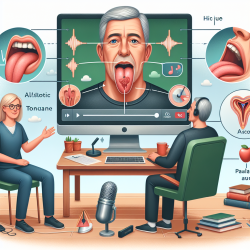Revolutionizing Pediatric Therapy with Whole-Exome Sequencing
In the realm of pediatric therapy, particularly for children with developmental delays and speech-language disorders, the importance of accurate diagnosis cannot be overstated. Recent advancements in genetic research, specifically whole-exome sequencing (WES), have opened new avenues for enhancing diagnostic precision and therapeutic outcomes. A pivotal study titled A semiautomated whole-exome sequencing workflow leads to increased diagnostic yield and identification of novel candidate variants sheds light on how WES can be a game-changer for practitioners.
Understanding Whole-Exome Sequencing
Whole-exome sequencing is a genomic technique for sequencing all the protein-coding regions of genes in a genome. This method is particularly useful in identifying genetic variants that may contribute to a child's developmental challenges. The study conducted at Children's Hospital Los Angeles demonstrated a 41% diagnostic rate for duo-, quad-, or trio-WES cases and a 28% rate for singleton-WES cases, highlighting the potential of WES in providing critical insights into genetic disorders.
Implementing WES in Clinical Practice
For speech-language pathologists and other pediatric therapists, integrating WES into clinical practice can lead to more targeted and effective interventions. Here are some steps practitioners can take:
- Collaborate with Geneticists: Work closely with geneticists to understand the genetic basis of a child's condition. This collaboration can inform therapy goals and strategies.
- Stay Informed: Keep up-to-date with the latest research in genetic diagnostics to leverage new findings in your practice.
- Advocate for Comprehensive Evaluations: Encourage comprehensive genetic evaluations for children with unexplained developmental delays or atypical therapy responses.
Benefits of WES in Pediatric Therapy
Implementing WES can significantly enhance the therapeutic process by:
- Providing Precise Diagnoses: Accurate genetic diagnoses can guide the development of personalized therapy plans.
- Identifying Novel Variants: The study identified novel variants in genes associated with developmental disorders, offering new targets for intervention.
- Reducing Time to Diagnosis: The semiautomated workflow used in the study returned preliminary results within a week, expediting the diagnostic process.
Encouraging Further Research
While the study presents promising findings, further research is essential to expand the understanding of genetic influences on developmental disorders. Practitioners are encouraged to participate in or support research initiatives that explore the intersection of genetics and therapy outcomes.
To delve deeper into the research and its implications, practitioners can access the full study here: A semiautomated whole-exome sequencing workflow leads to increased diagnostic yield and identification of novel candidate variants.










